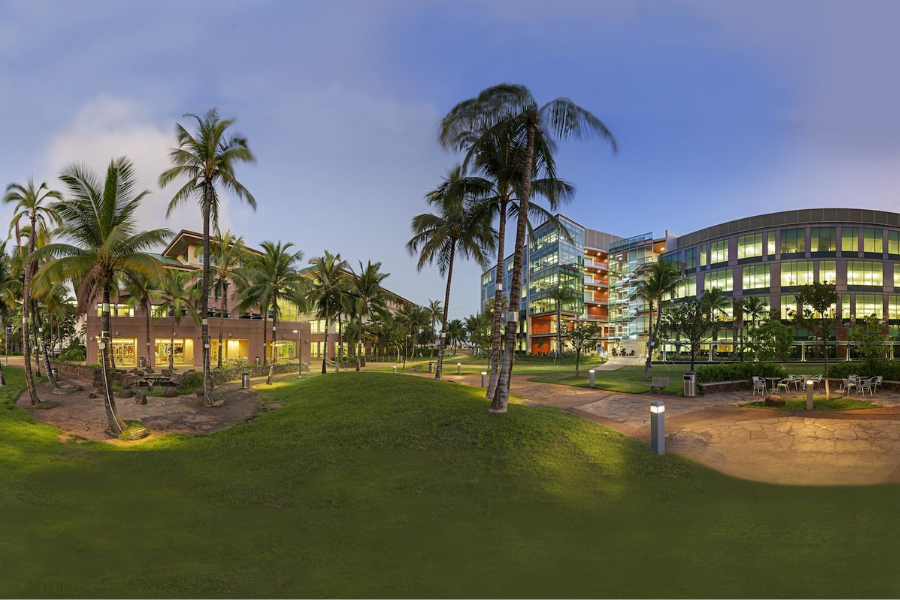
In a historic partnership, the University of Hawai‘i Cancer Center and the John A. Burns School of Medicine are launching Ka ʻUmeke Lama, a pioneering initiative to transform cancer care in Hawaiʻi and the Pacific. The initiative will raise the quality and consistency of cancer care through cutting-edge research, workforce development, and culturally informed practices. This effort will synchronize with fellow Hawaiʻi Cancer Consortium member organizations — Hawai‘i Pacific Health, The Queen’s Health Systems, HMSA, Kuakini Medical Center, and Adventist Health Castle — to have a major collective impact. The goal is to erase disparities in cancer outcomes and ensure all people have access to high-quality cancer care, regardless of background or geography.
Ka ʻUmeke Lama is a multipronged response to the unique and urgent challenges that Hawaiʻi and the U.S. Affiliated Pacific Islands (USAPI) face in providing comprehensive cancer care. The challenges include high cancer incidence and mortality rates among Native Hawaiians, Pacific Islanders, and Filipinos; and an acute shortage of oncology professionals that is especially severe on the neighbor islands of Hawaiʻi as well as remote islands and rural areas across the U.S. Affiliated Pacific. Some examples of disparities in health outcomes, according to the U.S. Department of Health and Human Services, Office of Minority Health:
The pioneering Ka ʻUmeke Lama (Hawaiian for “Bowl of Enlightenment”) initiative also anticipates Hawaii’s greater need for cancer care due to the aging of its population: By 2030, people age 65 and older are projected to make up 29.7% of Hawaiʻi’s population — compared with 20% for the U.S. population as a whole. Already, in Hawaiʻi, each year, an average of more than 7,000 local residents are diagnosed with invasive cancer, leading to 2,000-plus deaths.
(Source: Hawaiʻi Tumor Registry, 2022)
Highlights of the Ka ʻUmeke Lama initiative include:
“The mission of Ka ʻUmeke Lama is to provide equitable access to high-quality cancer care throughout Hawaiʻi and the U.S. Affiliated Pacific Islands by developing a strong and integrated oncology infrastructure,” said Naoto T. Ueno, MD, PhD, FACP, Director of the UH Cancer Center. “We will help cancer-related healthcare providers to work together to address complex issues in the Hawaiʻi and the Pacific. Our vision is a future where cancer care is accessible, equitable, and rooted in both scientific innovation and cultural understanding. Everyone should have access to high-quality cancer care, regardless of their background or geography.”
“Ka ʻUmeke Lama embodies our commitment to fostering science, equity, and cultural wisdom in oncology care,” said Lee Buenconsejo-Lum, MD, FAAFP, Associate Dean for Academic Affairs, who co-leads Ka ʻUmeke Lama with Dr. Ueno. “By strengthening and expanding the existing partnerships between the UH Cancer Center, JABSOM, and the health system partners of the Hawaiʻi Cancer Consortium; and leveraging JABSOM’s expertise in education, integrating education and research into clinical learning environments, extensive pathway programs from middle school to college, collaborations with the UH schools of nursing, pharmacy, social work and public health and UH community colleges, and large infrastructure grants that help grow the next generation of researchers in partnership with communities; we will be able to more effectively address our community’s needs, and create a distributed model of education, research, and clinical care that will serve patients throughout Hawaiʻi and the U.S. Affiliated Pacific Islands.”